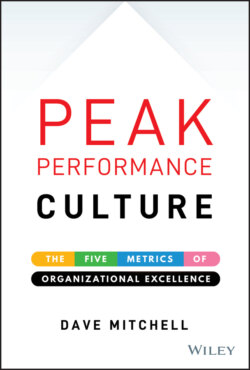Читать книгу Peak Performance Culture - Dave Mitchell - Страница 12
TRUE PASSION IS RARE
ОглавлениеPerhaps the biggest challenge in creating a peak performance culture is identifying, cultivating, and continuing passion. There are many threats to operational excellence – toxic leadership, poor strategies, misaligned policies and practices, mediocre customer experiences, less than stellar employee experiences – but none is so prevalent as lack of passion. I am forever struck by the number of people who spend over one‐third of their lives engaged in activities (work) from which they derive so little joy. As Henry David Thoreau said, “The mass of men live lives of quiet desperation.”
If you consider that work and sleep combine to consume about two‐thirds of our life – and that the preparation and recovering from each will expend another sizable chunk – we have precious little time left over to engage in activity for which we are passionate. It is hard to imagine that doing the laundry, grocery shopping, getting your oil changed, mowing the lawn, and all the other activities most of us spend our “free” time doing will provide an avenue for our passion. Therefore, our vocation offers us the best opportunity for joy over an enduring period. On the other hand, if we are passionate about our work, amazing performance is within our grasp.
If passion fuels individual performance and organizations are simply collectives of individuals, then clearly passion is the foundation for any successful organization. It begins with the founder/proprietor/owner/executive/leader, and employees responsible for the organization's performance. I suppose it is possible for an institution to eclipse the passion of its leader, but that shouldn't be necessary. Leaders must drive passion, not limit it. However, sometimes they do the latter. It has been my experience that successful organizations are founded by two types of people. What they have in common is a strong work ethic. They will do what is necessary to will their company to success. However, only one of these types of people will have enduring success—and that is the one who combines this abundant work ethic with a passion for the work being done.
Through the years, I have met many entrepreneurs with amazing ideas that I could not have begun to imagine. I have met brilliant businesspeople with an aptitude for capitalism that I will never possess. I have seen organizations fortunate enough to have immense capital at their disposal or to be located geographically or situationally in such a way that their competition was at an enormous disadvantage. While talent, imagination, money, location, and context are all vital to an organization's success, nothing is more important than passion. Why? Because the dirty secret of success is this: as hard as it is to achieve it, it is infinitely harder to continue it. Work ethic—what I think of as desire—is critical to achieving success; but passion is critical for continuing it.
